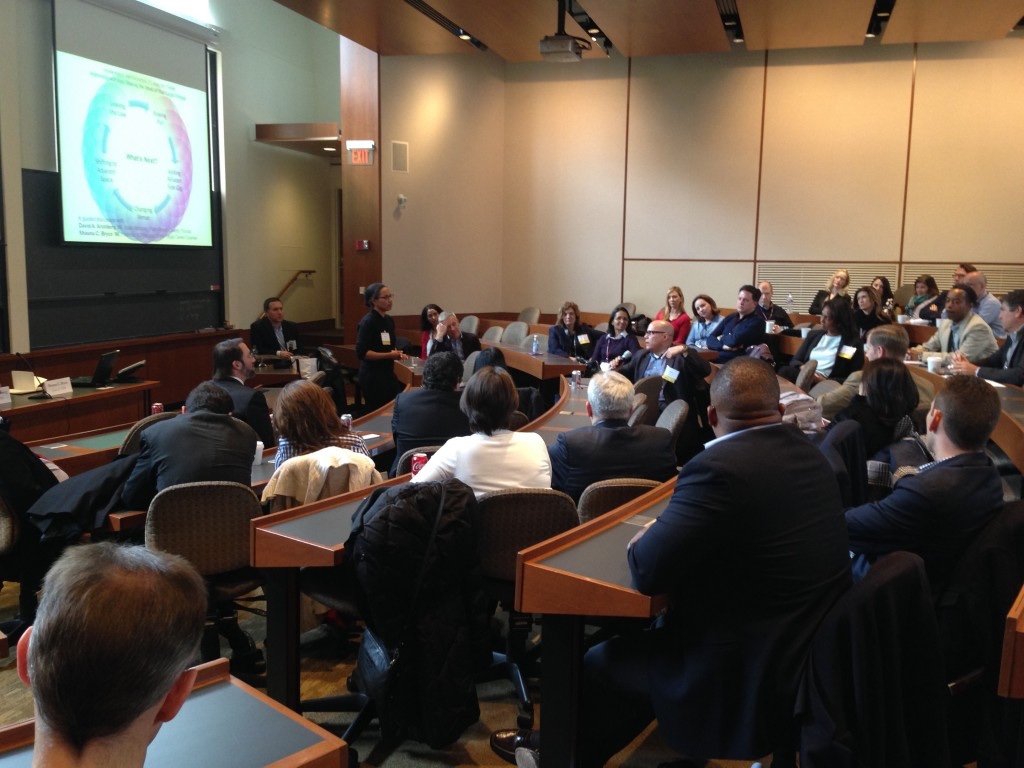
“I just got the call. I GOT THE JOB!!!!!!”
Are you marketing your technical legal skill set?
No corporate legal department, law firm, or legal organization can function without its individual contributors in the trenches. You’re the ones who get the work done.
“In the last 3 months, I’ve interviewed with almost every place I applied, including Facebook, Twitter, T-Mobile, Amazon, Honeywell, Nielsen, SEC, JPMorgan, and a US Attorney’s Office.”
If you’re a mid-level lawyer, then you’ve gotten your feet wet and you’ve had the chance to experience the practice of law.
If you’re a more senior lawyer, you may have already practiced law in a variety of settings.
“[S]ince we last spoke, I accepted a position at an AmLaw 100 firm! It is a position I would not have likely even applied for before we spoke. You were so very helpful with my concerns and confidence... your genuineness came through and made me feel a little more at ease with my search. Thank you!”
Either way, you’re prioritizing long-term stability, work-life balance, and functional / technical expertise as an individual contributor—unlike executive-track or partnership-track lawyers who are focused on climbing the corporate or law firm ladder in business development, management, and supervisory roles.
You make up a varied group:
“[T]hank you for all of your help, encouragement and support in enabling me to pivot my career towards patent prosecution... [I] got an offer last week... The road to getting my career on a livable track was quite bumpy for me - thank you for making it survivable. I never would have gotten here without your amazing coaching and support!”
Mid-level and senior law firm associates, as well as Of Counsel: 4+ years into your career, particularly if you’re not interested in pursuing partnership
Technical lawyers: Non-executive track lawyers committed a discrete practice area, like employment law, labor law, IP / patent law, marketing & advertising law, healthcare law, family law, insurance defense, real estate, contracts, and immigration law.
LegalOps support and staff attorneys: Lawyers in fields like conflicts, litigation support, or e-discovery project management.
Service lawyers: Attorneys committed to a non-executive role in a particular type of setting, like career prosecutors or defense attorneys, counsel in legal aid / legal services corporations, general practice attorneys in small firms, and sole practitioners.
Academics: Law professors, aspiring law professors, and law professors moving back into practice.
Lawyers in JD-Advantage Roles: Non-executive track attorneys leveraging their law degree in areas where bar passage may not always be required, like management consulting, contract management, corporate governance, compliance, public policy, privacy, dispute resolution, and cybersecurity.
Contract attorneys and independent contractors: Lawyers in temp roles, whether short (even per diem) or long-term, whether direct hires or through an agency, whether working on-site or remotely.
Non-traditional lawyers: Attorneys whose backgrounds aren’t high school > college > law school > law practice, including people with second careers, foreign-education or foreign-training, breaks from law practice, return to workforce, and military to civilian transition.
If you’re in this stage of your legal career, you may have some sense of where you’d like your career to go or, at least, where you don’t want your career to go. We’ll help you get there.
How we can help you
Career Challenges for Individual Contributors
Most individual contributors—no matter how many years of experience they have—are simply looking for work that they enjoy in an environment where they can contribute and feel valued.
The legal hiring market has had dramatic ups and downs in the last 30 years.
Many individual contributors entered the legal profession at challenging times. Contractions in the economy and legal market can lead to buyers’ markets that resulted in under-employment, feeling trapped in contract work or e-discovery projects, and derailed career dreams.
No matter which category they fit into, SMEs, senior, and mid-level associates are faced with a tremendous variety of potential course corrections, re-positionings, and adjustments…
Shauna C. Bryce speaking at Harvard Law School to alumni about mid-career options and decision-making, at the “Improving with Age: Making the Most of Your Legal Vintage” symposium.
A law firm senior associate wants to move in-house.
She’s confident she knows all the technical legal issues she’ll face. But even so, corporate legal departments have different needs than law firms. How can she position herself as a lawyer who understands the special demands of in-house counsel, including working within the greater corporate culture? How can she make herself an attractive candidate for employers in her target sector?
An insurance defense litigator never wanted to practice insurance defense law.
He had tremendous law school debt, and high volume insurance defense work was his only option for an attorney position when he graduated. He felt he had no choice but to take the job. But, after five years, he finds the work grueling and unfulfilling. He wants to leave. How can he broaden out his experience and appeal for other types of legal work in another small law firm?
A county prosecutor with 20 years of experience wants to shift in-house.
She’s a pro at criminal law and procedure. However, as a career-long government lawyer, she doesn’t have a book business; nor does she want to develop one. She just wants to be a lawyer in an environment that pays better and doesn’t require her to run such a large caseload. What types of roles should she look for and in what kind of employers? How can she translate her experience for in-house roles?
A contract attorney has been doing document review and e-discovery projects for three years.
He’s done feeling stuck and is determined to embrace this growing area of law and litigation management. How can he turn his e-discovery experience into an asset and a career at a law firm, multinational company, or e-discovery / information governance vendor? What about pursuing compliance roles in data security, data privacy, and user privacy? What additional certifications might add value to his résumé?
A healthcare lawyer is re-entering the law after a six-year hiatus as a family caregiver.
She’s afraid her legal career is over and worries she’s done nothing during that time employers would value. How can she demonstrate to employers that she’s committed to re-entry? How can she get her knowledge and skills current? How can she explain her hiatus on her résumé in a way makes sense to employers, but also protects her privacy?
*Samples are composites designed to protect the identities of individual clients.
Career Services for Individual Contributors
Just a few of the areas we can help you with are...
Writing and Branding
Résumés and CVs
Cover letters and correspondence
Deal sheets, representative matters, and sample projects
Listings of presentations, speaking engagements, and media mentions
Leadership bios
LinkedIn profiles
Letters of recommendation
Recruiter questionnaires
Marketing and website copy
Business plans
30-60-90 day plans
Flexible work proposals
Creation and articulation of a clear professional brand
Identification of value and impact
Immediate Career Decision-Making
Working with retained legal and executive search consultants
Moving in-house from a law firm
Developing an area of expertise
Demonstrating industry-specific or problem-specific track records
Getting hired as a lateral associate or lateral attorney
Building career narratives around non-linear work experience
Discussing employment, underemployment, and layoffs
Developing a potential book of business
Getting sponsors and mentors
Leveraging early career or military experience
Getting credit for language and cultural fluencies
Repositioning contract and e-discovery work as an asset
Returning to workforce after sabbatical (on-ramping)
Shifting to partnership-track or executive-track
Improving on-the-job performance
Navigating office politics and personalities
Moving in-house from a law firm
Changing job markets
Deciding among job offers
Negotiating salary
Downshifting
Long-Term Career Planning
Networking and relationship building
Building and showcasing thought leadership
Positioning for corporate or nonprofit boards
Identifying your best fit roles and employers
Identifying technical or experiential soft spots, as well as building plans to beef them up
Creating and moving toward end-goals
Interview prep
Lateral moves
Career Coaching for Individual Contributors
Get the help you want, when you want, at an affordable price. Our career coaching for lawyers is simple: just tell us the issues you’d like to discuss, and send us your current résumé (Don’t worry: it doesn’t have to be in great shape) so that we have some context. The more we know about your situation, the better we can assist. We can talk about interviewing, job search, networking—whatever you need.
“I just got the offer and accepted!!!! I absolutely could not have done this without you – thank you for everything 🙂”
Résumé Writing for Individual Contributors
“I had tried several times to interview with this company before, but never got a response—until I sent the résumé and cover letter you did. Then I got immediate positive feedback. I’ve had two recruiter interviews, and 4 interviews over the past week—including with a software company and as a general counsel for a small start-up. And this whole exercise has forced me to take a good hard look at what I’ve done and what I want.”
We understand that cost and timeframe can be major factors. After all, not everyone needs—or can wait for—for a bespoke résumé program incorporating deep dives into career history. But you shouldn’t have to settle for a second-rate (or worse) résumé writing service either.
Wouldn’t it be great if there was something in-between bespoke and cheap-o?
We thought so too. Over years of talking to lawyers searching for high-quality, professional help that was faster and more affordable than our bespoke projects, we’ve pioneered real-time, career services by screen share that save you time and money. Today, Bryce Legal offers lawyers résumé writing by screen share: our real-time, résumé writing service for SMEs, senior, and mid-level lawyers. Because this is an hourly résumé writing service, lawyers have the additional flexibility to control costs by working with their expert for as much—or as little—time as they want.
Social Media and LinkedIn® Profile Optimization for Individual Contributors
“In the last 3 months, I’ve interviewed with almost every place I applied, including Facebook, Twitter, T-Mobile, Amazon, Honeywell, Nielsen, SEC, JPMorgan, and a US Attorney’s Office.
”
LinkedIn is a great place to be found. It is now one of top recruiting tools for retained, contingency, and internal recruiters. Therefore, we recommend all lawyers have a strong, polished presence on LinkedIn—even those who are not actively looking for a new job.
Why Work with Us? Sample Testimonials from Individual Contributors
Why work with Bryce Legal? How can you choose the best lawyer career coach and legal résumé writer for you? Here’s what just a few our clients say. For more, please see Our Client Testimonials.
Your Career Experts for Individual Contributors







